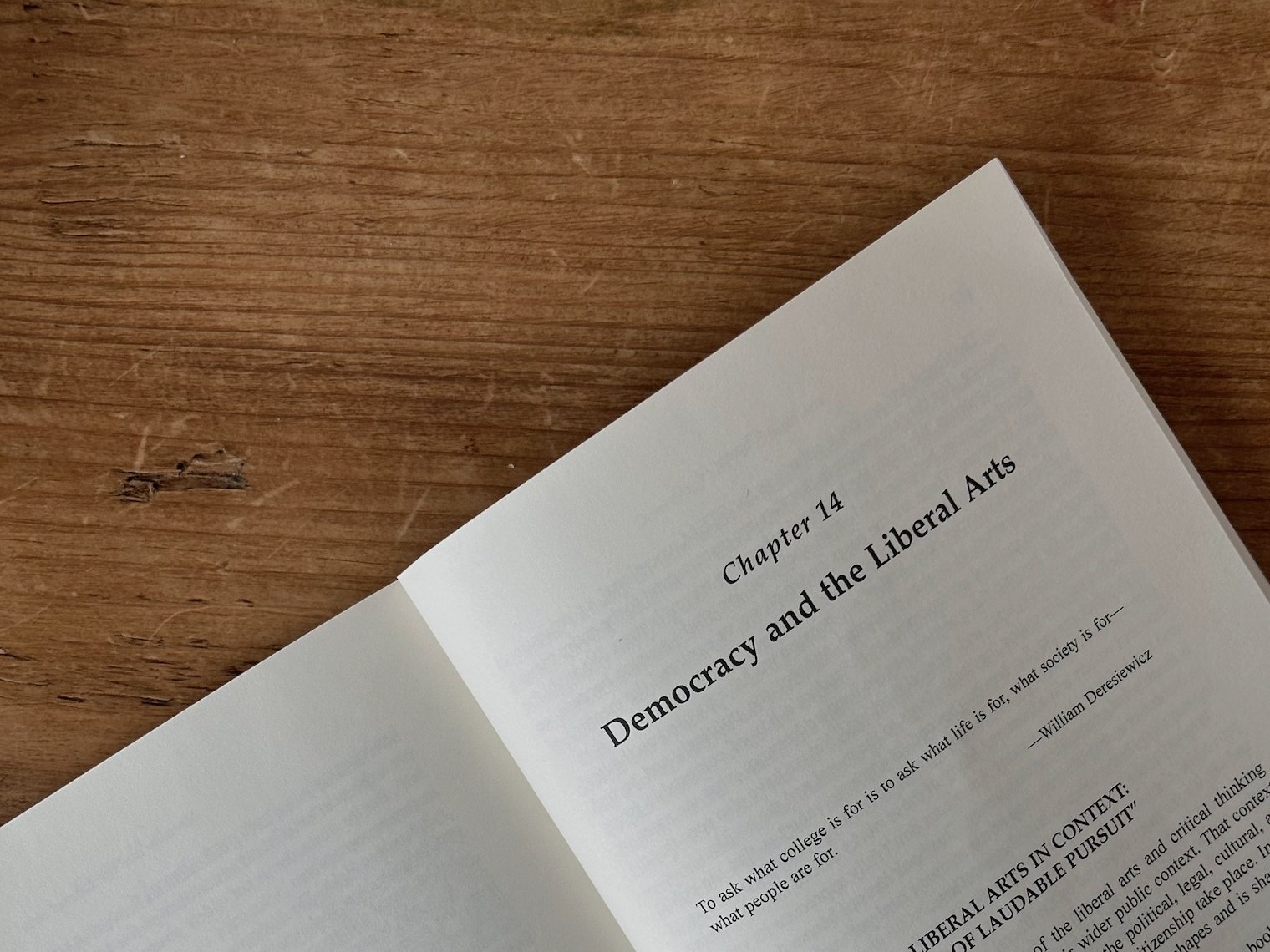Long before the Coronavirus appeared on our shores, Donald Trump had eroded American democracy in more ways than one could count: through lying and demagogy; supporting Putin and Russia over US interests; trying to extort Ukraine for political gain; obstructing Congress; attacking our institutions of justice, intelligence, law-enforcement, the military, the press. On top of all that, we’ve experienced the worst pandemic in over a century.
In the short run, the pandemic will fade, and Trump is gone. But his defeat only marked the beginning of our national moral reconstruction. Restoring faith in our institutions, in factual truth, and in each other, will be a heavier lift.
That’s where education comes into the picture. What can save us is an ancient idea summed up by the clumsy and antiquated phrase “the liberal arts.”
To see the connection, we need to remember what that phrase means. “Ars liberalis” was the Latin term in late antiquity for the skills of a free citizen; but liberal learning actually originated centuries earlier, in Ancient Greece. It reappeared as universities emerged in 12th century Europe, and further evolved with the advent of printing and the consequent spread of learning and democracy.
American government was born of Enlightenment ideas: liberal ideas such as political freedom, individual dignity, scientific method, and modern conceptions of truth, causality, and reason. And America emerged as a world superpower with an education system based primarily on the liberal arts model. It’s a model we’ve shared with the world, and one that is enjoying an upswing around the globe even as we question it at home.
But when it comes to the meaning of the liberal arts tradition, history tells only part of the story. It isn’t just that we taught ourselves to read books, analyze facts, enforce contracts, or separate religion from politics. The essence of liberal learning lies in two ideas that are joined at the hip: rationality and citizenship. Both began with the Greeks, and together they encapsulate the essence and purpose of the liberal arts. Let’s take them one at a time.
The unifying core of the liberal arts tradition is rationality in all its forms: formal and informal logic, analytic thinking, empirical and computational rigor. It’s about observing common rules and giving reasons; and it’s the gift that keeps on giving from the mother discipline of philosophy to other fields of inquiry.
Language itself is a rational system of rules and guidelines for communication in which we all partake. Reasoning, in some form, is embedded in everything we say or write. And as such, we’re already philosophers; learning to think more critically in the liberal arts simply makes us better philosophers. That’s why, as William Deresiewicz writes, “The first thing that college is for is to teach you to think.”
And democracy? That’s just the application of reason to self-government, as a substitute for force, including the idea that, morally and politically, we are all created equal. Thus, at every level, democratic values are linked to the values of education in general (including the adult education provided by a free press), and to the liberal arts in particular. Democracy depends on shared language and shared facts, as well as certain shared values, so that we can argue peacefully about the values we don’t share. It doesn’t depend on the STEM fields, important as they are in other ways.
Reason is the embodiment of democratic life, just as it’s the embodiment of liberal learning. But for the system to work, we can’t just sit back and let reason flow over us. We need to be active, rational citizens. Not rational like automatons or computers, but rational in pursuit of our irreducible needs, goals, and values.
This is not to exalt the liberal arts over other modes of learning. We need the STEM disciplines, and technical and vocational education, as much as ever. But these mainly promote economic citizenship. What’s unique about the liberal arts is that, by teaching us to be better thinkers, observers, team-workers, and communicators, they promote citizenship in all its dimensions: civic, cultural, and economic. It’s democracy’s educational trifecta.
Scholars have been predicting the death of the liberal arts for decades. Naïve politicians have welcomed their putative demise, on the cramped assumption that education is only about preparing students for waiting jobs. Yes, we need students to fill those jobs, and education that’s affordable to all. But to rebuild our democracy after Trump and COVID-19, we will need more than that. If the liberal arts are in decline, ask not for whom the bell tolls. When the liberal arts die, thinking dies, community dies, and democracy dies.

